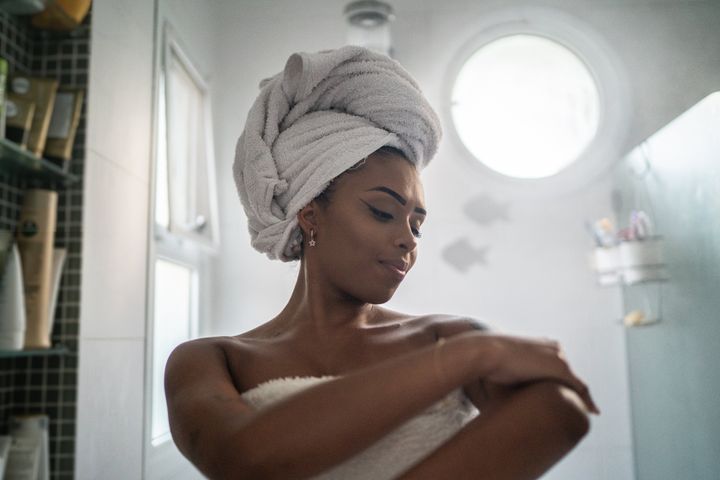News
The 1 Thing You Should Do At Night To Make Your Allergies Better
Between coughing, sneezing, watery eyes and a general blah feeling, allergies are an unwelcome and unfortunate side effect of the summer blooms around us. For some people, daily pills or nasal sprays help curtail symptoms, but for others, it can feel impossible to find a concoction that actually works.
If you’re someone who feels like they’ve tried everything but still gets hit with pesky seasonal allergies throughout the year, here’s a suggestion: Experts say a nighttime shower can be the missing ingredient in an allergy treatment routine.
“It helps to wash all of the invisible pollen grains from your body so they can stop causing your allergic reactions,” Ian Budd, a pharmacist at the U.K.-based Chemist 4 U, told HuffPost via email.
“For allergy sufferers, going to sleep with the pollen that has coated the hair, skin and respiratory tract can mean longer exposure to what you are allergic to ― even when you’re no longer outdoors,” said Dr. Monica Kraft, an allergist and immunologist at the Ohio State University Wexner Medical Center. “Showering can help remove the pollen and let [mucus] drain.” (It’s well established that the hot steam from a shower can loosen up mucus.)
What’s more, showering can keep your sheets clean by limiting the amount of pollen that you transfer to your bed.
“But on top of that, it’s going to minimize a lot of your nighttime symptoms, too, because a lot of our patients complain of allergy symptoms throughout the night,” said Dr. Mas Takashima, the chair of the department of otolaryngology at Houston Methodist in Texas. That includes alleviating nighttime congestion, which otherwise prevents you from getting the sleep you need.
Additionally, “you should consider washing your hair more regularly too. Pollen can cling to your hair quite easily, and as it is so close to your face, it’s only natural that pollen in your hair could contribute to your symptoms,” Budd explained.
Washing your hair daily isn’t an option for everyone, though. If that’s you, Budd said you can wear a bonnet at night to keep the pollen in your hair away from your face and off of your pillow.
FG Trade via Getty Images
On top of showering, “regularly cleaning your bedding ― especially down in the South, dust mites are very prevalent in moist, humid environments,” Takashima said.
It’s also a good idea to have a HEPA filter in your bedroom to help reduce allergens in the air, he said.
“I think we all tend to forget that we spend seven, eight hours in our bedrooms. And so if that’s the case, why not try to make that into an area where it’s where you’re prone to be less allergenic?” Takashima said.
Even more, showering as soon as you get inside can help you feel better.
According to Budd, “although showering before bed can help combat hay fever, showering as soon as you get home can prove even more effective. If your symptoms are particularly troublesome, we would recommend getting straight into the shower and changing your clothes as soon as you get indoors.”
If you do this, not only will you be washing off the pollen, you’ll also be lessening the amount of pollen you bring into your home, he said.
Other Tips If Allergy Season Is Extra Brutal For You This Year
“If you feel like your allergy season is lasting longer than before, you are probably right,” Kraft said. “Weather changes, climate change and fewer deep frosts mean that plants are blooming and pollinating earlier in the spring and lasting longer into the summer and there are higher pollen counts during the peak season.”
To help combat bad seasonal allergies, Kraft recommended that you start taking allergy medications as a preventative measure early in the season. So, if you normally have allergies starting in July, you should start taking your medication a few weeks before so the medication has time to build up in your system.
Once you’re in your allergy season, nasal saline irrigations can also help you flush out allergens, Takashima said. “If you wear sunglasses, or if you wear a hat, it can decrease how much pollen gets into your hair and your eyes.”
Additionally, keep in mind that peak pollen time is typically “in the early morning and late afternoon timeframes,” Takashima noted. This may mean staying inside during those times if you’re having a particularly bad allergy day.
There are also many over-the-counter medications, nasal sprays and in-office allergy treatments available. Connect with a physician for the best road map for you.
“Talking to your doctor about an allergy treatment plan can make the pollen seasons more tolerable,” Kraft said.
Read more

